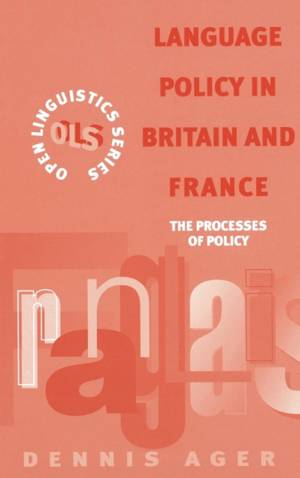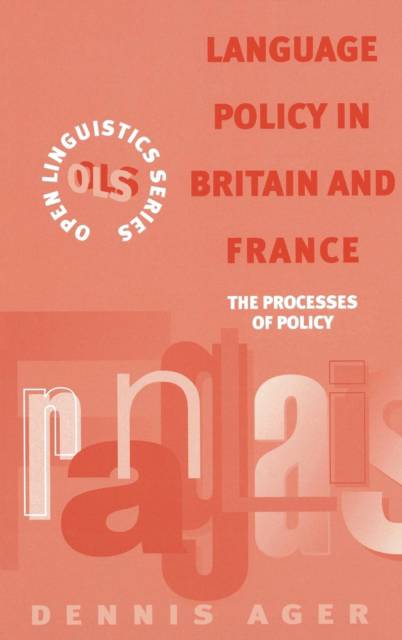
- Retrait gratuit dans votre magasin Club
- 7.000.000 titres dans notre catalogue
- Payer en toute sécurité
- Toujours un magasin près de chez vous
- Retrait gratuit dans votre magasin Club
- 7.000.0000 titres dans notre catalogue
- Payer en toute sécurité
- Toujours un magasin près de chez vous
Description
This book examines the making of language policy, and to a certain extent language policy itself, in Britain and France. It defines what language policy is and to what is applies, and how disciplines such as sociolinguistics and the analysis of the politcal process help in studying the language policy and policy-making. An examination of language policy on both countries up to 1995 pinpoints the main characteristics, and study of both the cultural and the political environment in which policy-makers work is seen as crucial to understanding. The policy-making process itself it studied in a number of stages: what causes policy-makers to show interest in language questions? How are language problems identified as such? Is there a language policy network or community and, if so, which groups and individuals influence it? How are negotiations over policies conducted? Once policy has been decided, how is it implemented, and how different are the methods used? What is the outcome of the policies? Six main case studies illuminate the discussion and provoke the comparisons: support for English or French abroad, spelling reform in France, the Toubon law of 1994 and the Welsh Language Act of 1993, language policy for immigrants, sexism in language and government responses to literacy. finally, the author asseses and compares the policies, and the effectiveness of policy-making, in the two countries. Dennis Ager is Proffesor of Modern Languages at Aston University, Birmingham.
Spécifications
Parties prenantes
- Auteur(s) :
- Editeur:
Contenu
- Nombre de pages :
- 224
- Langue:
- Anglais
- Collection :
Caractéristiques
- EAN:
- 9780304337590
- Date de parution :
- 30-04-98
- Format:
- Livre relié
- Format numérique:
- Genaaid
- Dimensions :
- 151 mm x 239 mm
- Poids :
- 530 g

Les avis
Nous publions uniquement les avis qui respectent les conditions requises. Consultez nos conditions pour les avis.






